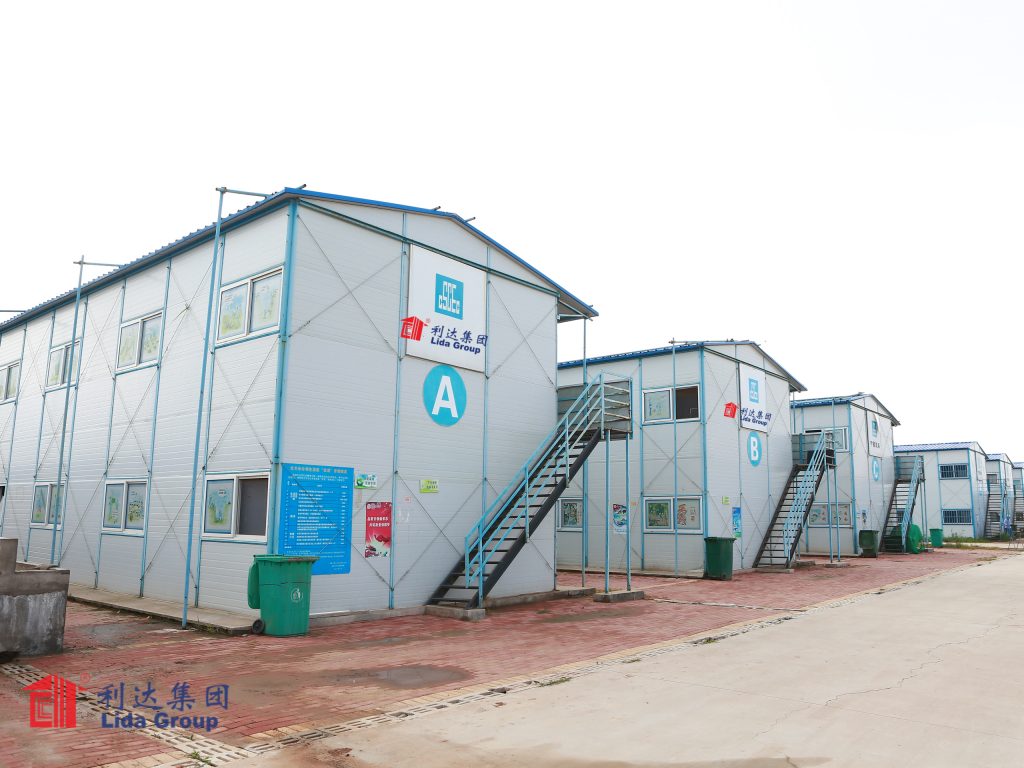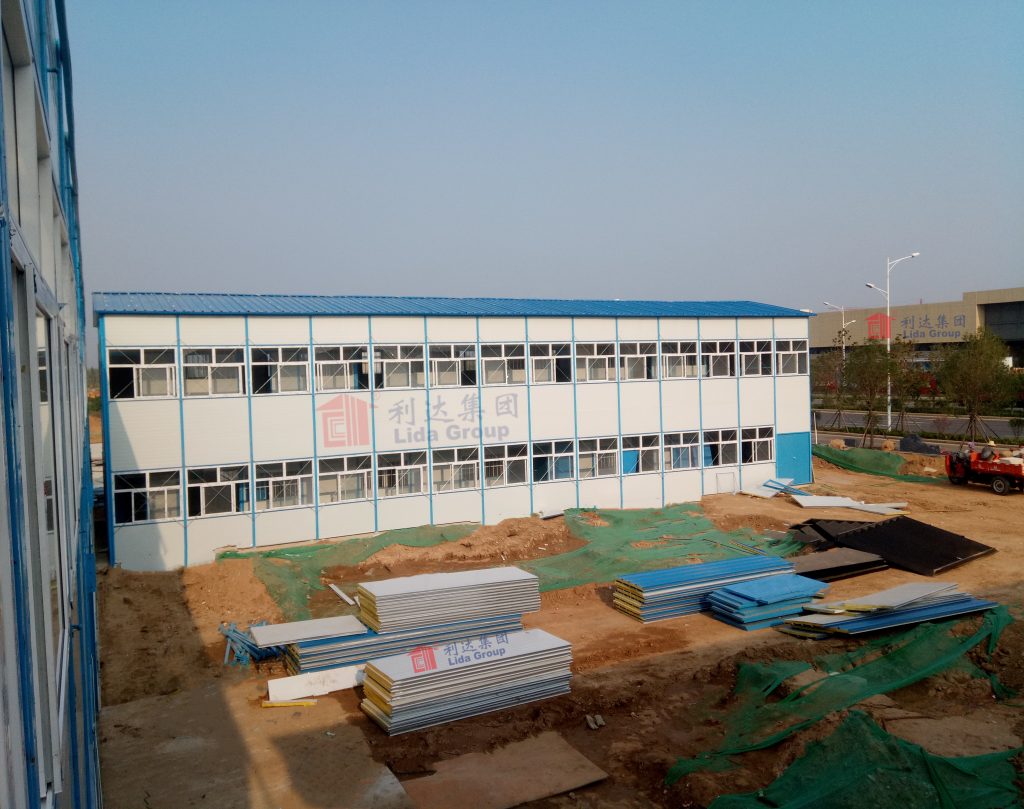Providing comfortable accommodations for transient workforces presents ongoing challenges. A technical paper evaluates Lida Group‘s optimized process for mass-producing prefabricated modules delivering standardized yet versatile housing to non-permanent populations globally.
Early prototypes hand-assembled wall panels on-site, limiting scale. To maximize productivity, engineers redesigned the assembly line concept around complete modular units. New facilities now integrate all component manufacturing, pre-outfitting and quality control within sequential workcells.
Standardized floor plans organize rooms into discrete cassettes which fully assemble independently before installing as building blocks. Workcells cut insulation, fasten exterior sheathing and integrate framed envelopes all at once per cassette using lean manufacturing principles. Prefabricated MEP junction boxes simplify field connections.

Mass floor cassette construction now takes one day versus piecemeal methods requiring weeks. Standard cassettes customize interchanging interior layouts within the same equipment footprints. Prefabricated modules erect comparable complexes 30% faster than stick construction while improving quality control.
An integrated Dutch factory produces 4,000 units annually within 300,000 sqft. Cassettes progress through walled cleanrooms maintaining tight tolerances free of dust or moisture incursion compared to open-air manual methods prone to defects. Digital fabrication streamlines sequences without manual labor bottlenecks, stabilizing throughput 50% over seasonal fluctuations. Automation prevents repetitive stress injuries and improves outcomes.
Lean practices maximize material utilization. Optimization software minimizes cutting waste generation below 1% through nesting algorithms. Scrap recycles back into core formulations eliminating landfill outputs. Digital monitoring tracks energy/water consumption benchmarking facilities’ eco-impacts against performance targets, reducing footprints 30-50% annually through continuous improvement protocols.

Research expands materials sustainably. Hemp-concrete prototypes satisfy structural demands naturally sequestering carbon versus thermal bridging through rigid insulations. Pilot compressed earth block developments utilize local mining spoils as cost-effective thermal mass. Partnerships explore renewably sourced mycelium or bamboo-based alternatives potentially reducing embodied carbon footprints 75% versus traditional enclosures.
Evaluating assembly techniques, engineers proposed a slip-form technology inspired by concrete tunnels. Here, the continuous module production line lifts cassettes vertically as cast panels assemble layer-by-layer, shortening cycle times 50% versus traditional horizontal wall construction. Robotic arms integrate pre-cut openings, reinforcements and hardware seamlessly within a single pour. Early prototypes completed enclosed modular units in under 4 hours versus over 1 week through conventional sequencing.
Field deployments validate optimized processes. A Mongolian mining settlement constructed from Dutch-produced cassettes finished housing for 7,000 within 8 months versus 3 years traditionally – critical for occupancy matching remote project schedules. Workers assembled standardized bedrooms into clusters resembling small villages amid landscaped precincts guided through instruction manuals needing no specialized skills. Annual volume now reaches 12,000 units sustainably serving mining, energy and maritime projects globally.

Feedback shapes ongoing refinement. Assessments quantitatively benchmark throughputs, costs, waste generation and carbon footprints proving optimized mass production outperforms existing prefab standards. Engineers visualize fully-automated future factories producing complete prefinished modules 100% from renewable and recycled materials within 24 hours, potentially revolutionizing construction’s economic and environmental impacts worldwide to benefit global workforce housing needs sustainably for generations.
In conclusion, this technical paper evaluated Lida Group’s optimized mass production process for prefabricated modular housing demonstrating significant improvements for scalably and sustainably delivering dignified, temporary accommodations. Standardized yet adaptable modules replicate comfortable living spaces faster, with lower embedded carbon footprints to support fluctuating populations worldwide through continuous manufacturing innovation.

Related news
-
Journal highlights partnerships facilitating localized production of Lida Group's modular components for interim housing units constructed from durable insulated panels.
2024-08-30 15:55:33
-
Case study evaluates the implementation of an integrated steel-framed agricultural facility incorporating housing, storage, livestock shelter and processing areas based on Lida Group's pre-engineered designs.
2024-08-29 16:52:28
-
Engineers analyze innovations enabling Lida Group's prefabricated buildings assembled from insulated composite wall and roof cassettes to meet diverse short-term worker accommodation needs cost-effectively.
2024-08-30 15:07:03
contact us
- Tel: +86-532-88966982
- Whatsapp: +86-13793209022
- E-mail: sales@lidajituan.com


